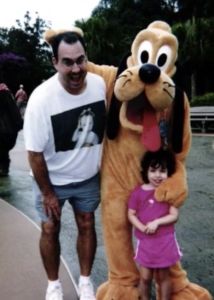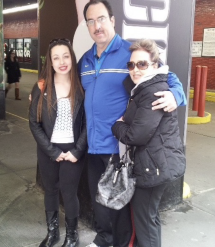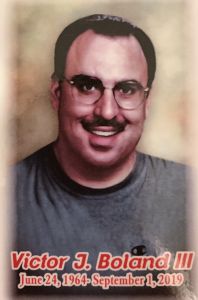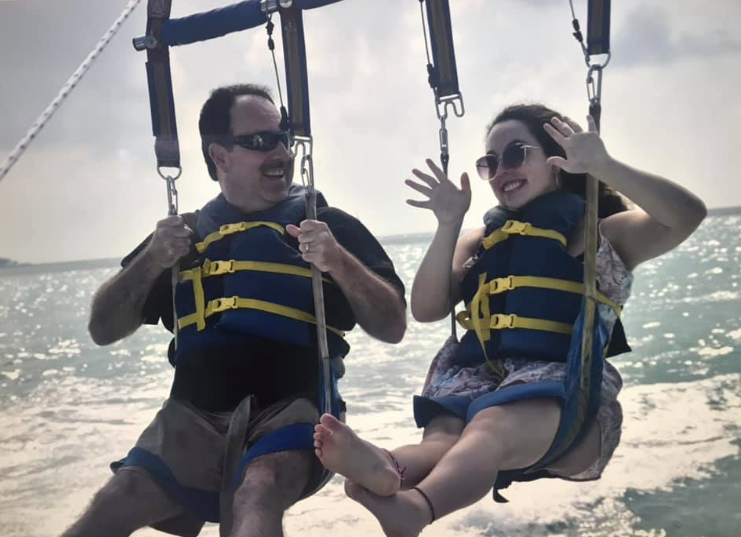The last words he ever spoke was “I love you, peanut.”
On Sept. 1, 2019, my father passed away unexpectedly. I saw him perfectly happy and healthy that morning. I still can’t comprehend that he is gone.
As a child, I always believed my father would be with me forever. He was my coach, my mentor and my best friend. We shared endless amounts of memories going to concerts, sporting events and fancy dinners. I loved receiving his calls before I went to bed. They gave me a sense of safeness.

My life will never be the same. Getting in the car, coming home from the hospital with my dad not sitting by my side left me feeling empty, hopeless and oddly with a sense of peace. A million thoughts swarmed in my head. Trying to comprehend how I can live a normal life without my dad, I didn’t want to become the person who would cry when they see a little girl holding her father’s hand, but I am.
My father did everything: he paid the bills, he grocery shopped, he took my family out, and he was always there for me to have a shoulder to cry on. A daughter can never imagine having the center of her universe ripped away. My normal routine has been broken but it is okay. I have learned life moves on, people come and people go.

I have been questioned endless amounts of times on how my father passed. It originally started with a paragraph explaining in detail. Now I simply respond with he had a heart attack. Speaking to peers over and over again reliving the worst night of my life leaves me in shock every time.
I didn’t want to grieve, I still don’t. I wanted to pick up where I left off and act as if nothing happened. I learned quickly that it won’t work. This article written by Damian Marlow explains grieving through his struggles. Marlow explains grief is different for every individual, but it’s part of the process. Grieving is okay and if you are suffering a loss don’t think you can’t grieve because it is completely natural. According to HealGrief “Many people have heard of the five stages of grief (denial, anger, bargaining, depression, and acceptance).” Another tip to cope with grief is just talking about the loved one. This has helped me the most. I have learned it is okay to cry.
If you are struggling with the loss of a loved one in college know you are not alone. A fact that stood out to me on Resource Center was that “Across studies, we see that 35 to 45 percent of college students are within two years of the death of a family member or a friend,” Heather L. Servaty-Seib wrote. This really showed me how many others are in the same boat. I have learned to never assume something about an individual until you know their backstory. Try to be there for one another, it can really help someone when they’re having a bad day. Know life will be okay one day.
Nothing I or the doctors could have done would have saved my dad. I am thankful for the almost 20 years he was with me. I am glad my father had an impact on so many other individuals on this planet. This year will be a journey but I know he will be watching every moment of it. This terrifying experience has made me a stronger individual.
If you have lost a parent or a loved one know you aren’t alone. Someone else lost a friend, a child, a sibling or a parent. There will always be someone who will listen to you. Don’t be afraid to speak up and start a new journey.





I cried reading your beautifully written story.
I’m so sorry for the sudden unexpected loss of your father.